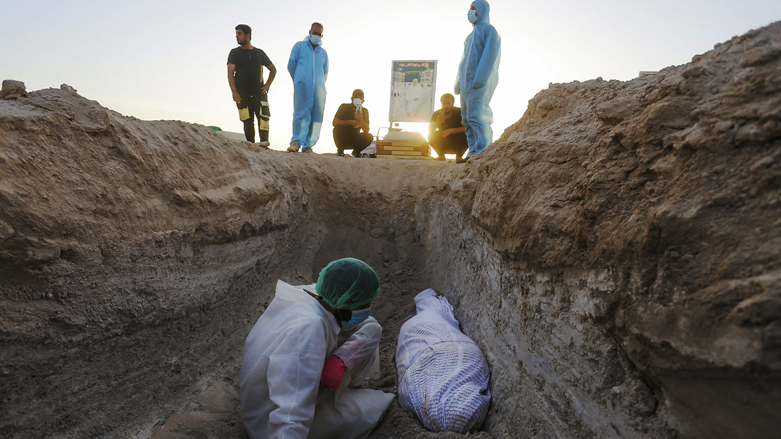COVID-19: New daily cases in Iraq exceed 4,000; authorities warn of stricter health measures

ERBIL (Kurdistan 24) – The Iraqi Ministry of Health and Environment warned on Tuesday of the possibility that it would tighten health measures to enforce such behaviors as mask-wearing and social distancing as new coronavirus infections continue to rise on a daily basis.
“The toughening of preventive measures decisions, or reducing them, is the authority of the High Committee for Health and Safety, and such decisions will depend on the daily epidemiological situation within two weeks’ time,” ministry official Ruba Falah told local media outlets.
Health officials announced that day that 4,181 people in the Middle Eastern nation had contracted the highly-contagious disease over the previous 24 hours.
Baghdad has recently been recording the highest rate of coronavirus cases in several weeks, with officials warning that the increase heralded an outbreak of a new wave of infections that may be more deadly than the first due to the residents' negligence in adhering to preventive measures aimed at curbing the virus' further spread.
“If there is a significant increase in the number of daily coronavirus cases, there will be more severe decisions,” continued Falah. “In the event that the numbers of infections declined, there is the possibility of easing restrictions and procedures, but this matter is settled by the epidemiological situation.”
She added that health and security officials have not ruled out the option of “going to areas with high infection rates and imposing a comprehensive curfew there due to their lack of commitment to health restrictions."
According to the Iraqi health ministry, the total number of infections across the nation has reached 675,982, over 13,000 of them fatal.
Today's figures reported by the federal government in Baghdad do not include the most recent developments in the autonomous Kurdistan Region, which has its own health ministry and typically announces results later in the day. As such, Kurdistan's numbers are usually added to the following day's national tally.
Editing by John J. Catherine
